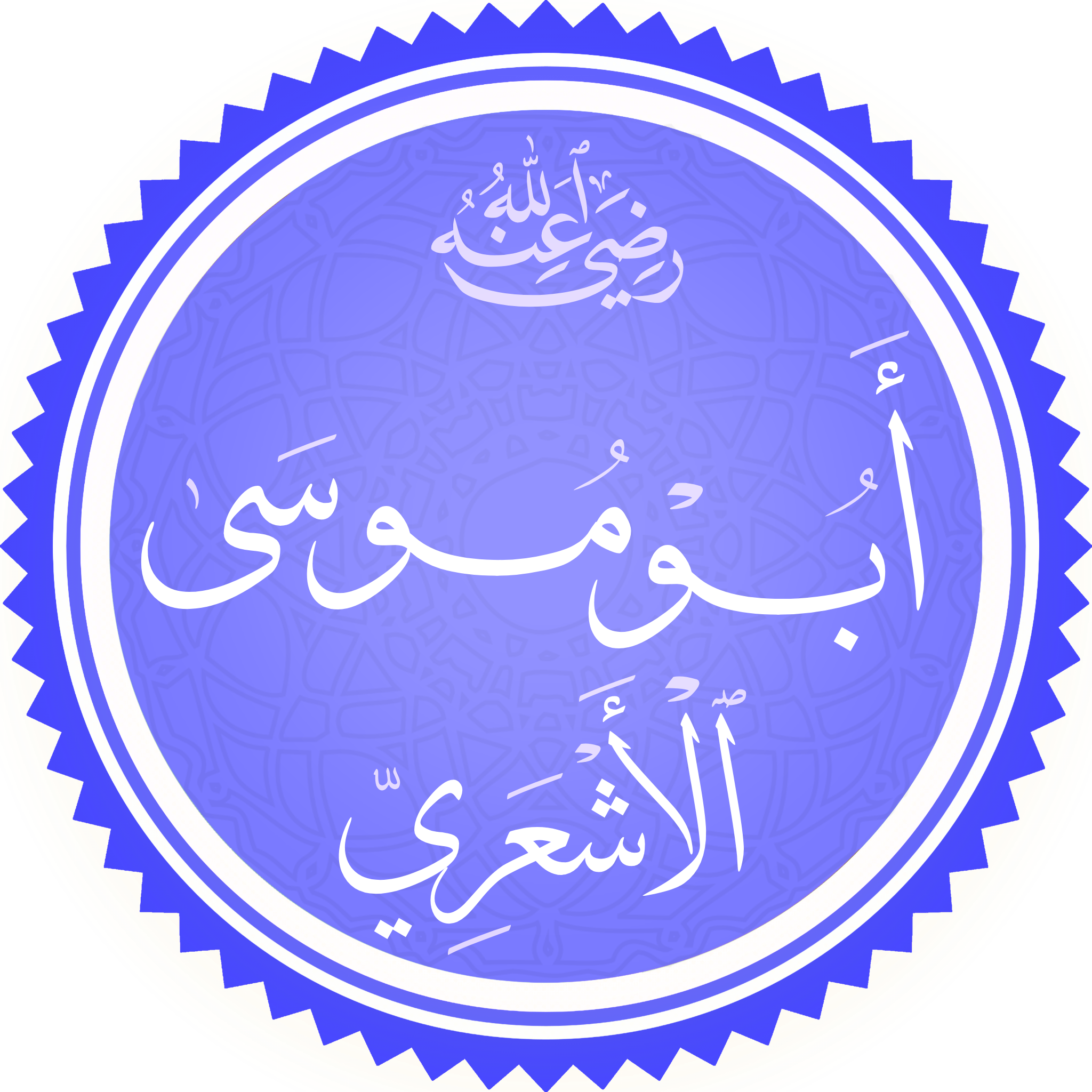Author: Abū ʿIyāḍ
Source: https://www.asharis.com/creed/articles/xsqvm-abu-muhammad-al-juwaynees-d-438h-attestation-for-the-salafee-aqeedah.cfm
Published: June 2009.
In the Name of Allāh, the Ever Merciful, the Bestower of Mercy
Abū Muḥammad al-Juwaynī (d. 438H) was amongst the Ashʿarīs who in the later part of his life came to recognize, by Allāh’s favour and bounty, the stark and inherent contradictions in the path of those adopting taʾwīl (figurative interpolation) towards those attributes they did not affirm for Allāh, the Mighty and Majestic. The Ashʿarī madhhab is in fact full of contradictions and is a mixture of the uṣūl (foundations) of the Jahmiyyah and Muʿtazilah, as in shāʾ Allāh we will cover in more detail. For now, here is Imām al-Juwaynī explaining his experience.
Abū Muḥammad al-Juwaynī’s Retraction From the Madhhab of the Ashʿariyyah
Abū Muḥammad al-Juwaynī1 (d. 438H) said:
Know, that for a brief period of time, I was confused about three matters:
the issue of as-Ṣifāt (Allāh’s Attributes)the issue of al-Fawqiyyah (Allāh being above His creation)
the issue of al-Ḥarf (the Letter) and aṣ-Ṣawt (the Voice) about the Glorious Qurʾān.
I used to be confused about the different sayings — which are found in the contemporary books with respect to these matters — whether taʾwīl (interpretation) and taḥrīf should be made of the Attributes. Whether to take them as they are and halt at their meanings, or whether to affirm them without taʾwīl, taʿṭīl, tashbīh or tamthīl.But I found in the texts of the Book of Allāh — Most High — and the Sunnah of His Messenger ﷺ, a great clarity about the reality of these Attributes, and likewise with respect to affirming al-ʿulūww (the highness of Allāh), al-Fawqiyyah, al-Ḥarf and aṣ-Ṣawt.
Then I found in the books of the later Scholars — from the Mutakallimūn (the People of theological rhetoric and innovated speech) — their making of taʾwīl (of Allāh’s Attribute) of al-Istiwāʾ (Allāh ascending above the creation) by saying that it meant qahr (His dominance) and istīlāʾ (His conquering); taʾwīl of (Allāh’s Attribute) of an-Nuzūl by saying that it meant His command descends; taʾwīl of (the Attribute of) al-Yadayn (the Hands of Allāh) to mean His Power or His Favour; and taʾwīl of al-Qadam (the Foot of Allāh) to mean the fine reward with their Lord; and the likes of this.
Along with this, I found that they claimed that the Speech of Allāh — the Most High — meant a speech existent in His Self (qāʾim bidh-dhāt) with letter, but not with voice. They claimed that these words are a mode of expression from the meaning existing with Himself!
From those who held to these sayings were a group of people, who had high status in my heart, such as a group of Ashʿarī Shāfiʿī Scholars — and I am upon the madhhab of ash-Shāfiʿī — may Allāh be pleased with him — knowing the obligation of my Religion and its rulings. So I found the likes of these great Shaykhs adhering to the likes of such statements — and they were my teachers — and I had complete faith in them, their nobility and their knowledge.
However, despite all this, I found my heart having a hatred for such taʾwīl such that I could not find any tranquility and peace with it. It caused my chest to feel constricted, rather than causing it to expand.
And I used to fear affirming the Attributes of al-ʿulūww, al-Istiwāʾ and an-Nuzūl, fearing that it would imply ḥaṣr (limiting and encompassing Allāh by His creation) and tashbīh (resembling Allāh to His creation i.e. anthropomorphism).
However, despite this, when I studied the Book of Allāh and the Sunnah of His Messenger ﷺ, I found in them texts pointing to the reality of these meanings. I found that the Messenger ﷺ clarified that which came from his Lord, as well as describing Him with them. And know — without any doubt at all — that he used to have present in his noble gatherings the scholar and the ignorant person, the one with sharp intelligence and the not so sharply intelligent, the Arab and the non-Arab.
However, I did not find anything by which he followed up such texts with which he used to describe his Lord — neither with another text, nor with anything that would cause the meanings to be removed from their ḥaqīqah (real meaning) or cause taʾwīl to be made of them; such as the taʾwīl of my Shaykhs and Scholars from the Mutakallimīn (the People of theological rhetoric and innovated speech) — such as their taʾwīl of al-Istiwāʾ to istīlāʾ, and their taʾwīl of an-Nuzūl (Allāh’s descending) to mean that His Command descends; and other such things.
And I did not find that he used to warn the people from having faith in what was apparent in his speech describing His Lord, whether it was concerning al-Fawqiyyah (Allāh being above His creation), or al-Yadayn (the Hands of Allāh), or other than them — and there is nothing recorded from him which proves that these Attributes have another inner meaning, other than what is apparent from their meaning…
Then Imām al-Juwaynī – may Allāh have mercy upon him – mentions some āyāt and aḥādīth concerning al-Fawqiyyah and al-Istiwāʾ, then he continues:
So when we came to know this, and came to hold this as our ʿaqīdah (belief), we were then preserved from the doubts of taʾwīl, the blindness of taʿṭīl (divesting Allāh totally or partially of His Attributes), and the foolishness of tashbīh and tamthīl (likening Allāh to His creation). We then affirmed for Allāh the ʿulūww (highness) of our Lord – the Most Perfect – and His fawqiyyah and that He ascended (istawā) over His ʿArsh (Throne) in a manner that befits His Majesty and Greatness.
So the truth is very clear in this and the chest will readily accept this, for indeed taḥrīf (distortion of the text) is rejected by the correct and sound intellect, such as taḥrīf of istiwāʾ to istīlāʾ (conquering) and other than this. Likewise wuqūf (affirming the wording of the Attributes, but halting at their meanings) is also blindness and ignorance, since we know that our Lord described Himself with these Attributes that we may come to know Him by them.
So – in our knowing Him – we do not halt at affirming the wordings of the Attributes, whilst negating what is intended from their meanings. Since He did not describe Himself to us by these Attributes, except that we may affirm what He has described Himself with, not that we halt at them. Likewise tashbīh and tamthīl are also foolishness and ignorance. Thus, the one whom Allāh – Most High – causes to agree upon the affirmation (of His Attributes) – without taḥrīf, takyīf and wuqūf – then he has indeed agreed upon what is intended for them, if He – the Most High – wishes.
Then he – may Allāh have mercy upon him – explains the reason why Ahl al-Kalām (the People of Theological Rhetoric and Innovated Speech) felt that they were forced to make taʾwīl of istiwāʾ to istīlāʾ, so he said:
And Allāh expanded my chest about the state of those Shaykhs who made taʾwīl of al-Istiwāʾ to istīlāʾ – and it is my belief that they do not understand the Attributes of the Lord – the Most High – except with what befits the creation. Thus, they do not understand al-Istiwāʾ of Allāh as it truly befits Him – so this is why they distort the words from its proper context and deny what Allāh has described Himself with. And we shall mention the explanation of that, if Allāh wills.
And there is no doubt that we and them (i.e. Ashʿariyyah) agree upon affirming the Attributes of al-Ḥayāh (Life), as-Samʿ (Hearing), al-Baṣar (Seeing), al-ʿIlm (Knowledge), al-Qudrah (Power), al-Irādah (Will), and al-Kalām (Speech) of Allāh. And we certainly do not understand the Attribute of Life of Allāh to mean with the likes of such organs that are established in our bodies. Likewise, we do not understand the Hearing and the Seeing of Allāh to imply that there are limbs.So, just as they say: His Life is not like ours, nor is His Knowledge and Seeing – rather they are Attributes in a way that is befitting to Him, not befitting us. Then we – likewise – say: His Attribute of Life is known but its kaifiyyah (the nature of how it is) is unknown.
His Knowledge is known but its kaifiyyah is not. Likewise, His Seeing and Hearing are known, and there is no implication of there being organs and bodily-parts in any of this – rather all these Attributes are in a way that befits Him.
Likewise is the case for His ʿAyn (Eye), Fawqiyyah, Istiwaʾ, and Nuzūl.
His Fawqiyyah is known – it is established just like the reality of His Hearing and the reality of His Seeing are also established. They are known but their kaifiyyah is not. Then, similarly, His Fawqiyyah is known and established in a way that befits Him, but the kaifiyyah is not.
Likewise, His Istiwaʾ (Ascending) over the ʿArsh (Throne) is known, but the kaifiyyah is not explained by implying movements or transmission which befit the creation – rather His Istiwaʾ is in a manner that befits His Greatness.
Thus, His Attributes are known from the direction of sentence and affirmation, but are unknown from the perspective of how they are and setting limits. So the Believer is clear about the Attributes from one perspective and blind from the other. The Believer is clear from the perspective of affirmation and existence [of the Attributes], but blind from the perspective of their kaifiyyah and limits.
And this is the way — by affirming what Allāh – the Most High – has described Himself with, and by negating taḥrīf, tashbīh and wuqūf. This is what the Lord – Most High – intends for us concerning His Attributes: that we recognise them, have īmān in them being ḥaqīqah (real), and negate any tashbīh to them, nor deny for Allāh His real Attributes by taḥrīf and taʾwīl.
Indeed, there is no difference between Allāh’s Attribute of al-Istiwaʾ and as-Samʿ, and between His Attribute of an-Nuzūl and al-Baṣar – since each occurs by a text.
So if they say to us about al-Istiwaʾ: You have made tashbīh! Then we reply to them about as-Samʿ (Hearing): You have made tashbīh and have described your Lord with organs! So if they say: No organs and bodily parts, rather it is in a manner that befits Him – then we reply about al-Istiwaʾ and al-Fawqiyyah: There is no confinement nor limitation, rather it is in a manner that befits Him.
So whatever is necessary concerning the Attributes of Life, Hearing, Seeing, and Knowledge and not making any tashbīh to them, then such is also necessitated regarding Allāh’s Attributes of Ascending (al-Istiwaʾ), Descending (an-Nuzūl), al-Yad (Hand), al-Wajh (Face), al-Qadam (Foot), ad-Ḍaḥik (Laughing), and Taʿajjub (Amazement). So just as they do not imply for Him any organs, we do not imply for Him any limbs nor anything that befits the creation.
And it is not from justice and fairness that they understand the Attributes of Ascending, Descending, Face and Hand to imply resemblance to the creation, and therefore they think that they must resort to taʾwīl and taḥrīf – yet they do not do so for the other Attributes such as Life, Hearing and Seeing.
So those possessing justice and fairness will understand what we have said, take it as their belief, accept our sincere advice, and will take as the Dīn of Allāh the affirmation of all His Attributes, negating from them any tashbīh, taʿṭīl, taʾwīl or wuqūf. This is what Allāh intended from us concerning this.
Since all these Attributes (that they affirm) and all the others (that they make taʾwīl of) come from a single place – and that is the Qurʾān and the Sunnah. Thus, when we affirm one set of Attributes without taʾwīl, but make taʾwīl and taḥrīf for the others, then we are like those who believed in one part of the Book but disbelieved in another part. And this is sufficient and clear – if Allāh – the Most High – wills2.
This clarification from Imām al-Juwaynī is very clear and manifest and extremely strong, there not being found any Ashʿarī proponent to date who has been able to refute Imām al-Juwaynī’s line of reasoning – which in fact represents the generality of the refutation of the Salaf (past and present) against the rejectors and distorters of the Divine Attributes.
Source: al-Ibaanah Magazine.
Notes:
- He is Abū Muḥammad al-Juwaynī, father of the famous Imām al-Ḥaramayn Abū Maʿālī al-Juwaynī. Abū Muḥammad was a Shāfiʿī faqīh and initially followed the Ashʿariyy madhhab in ʿaqīdah.
However, he retracted from this and returned to the madhhab of the Salaf — as is attested to by his book Risālah Ithbāt al-Istiwāʾ wa al-Fawqiyyah. - Taken from: Risālah Ithbāt al-Istiwāʾ wa al-Fawqiyyah (pp. 176–183), abridged – which is part of Majmūʿat ar-Rasāʾil al-Munīriyyah.










